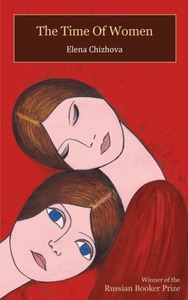Take a photo of a barcode or cover
Intense, sweet and caustic, not linear - almost stream of consciousness - deep.
Emotional.
Emotional.
Zdumiewa ilość głupot nawypisywanych o tej książce. Niżej, na Goodreads, i szczególnie po angielsku. Nie powinno się brać jej do ręki, choćby bez odrobiny wiedzy o blokadzie Leningradu, o kolektywizacji, o przedwojennych czystkach, o spisku żydowskich lekarzy... i realiach codziennego życia za "żelazną kurtyną". Bez tego zostają te farmazony o "strumieniu świadomości"! Bolesna lektura, do trzewi poruszająca.
In 1950s Russia, Antonina and her daughter are on their own until they manage to secure space in a communal apartment that they share with three elderly women, the "grandmothers." These three women have lived through the chaos of the first century of Russian life and its horrors and challenges have affected them all. As they help to raise Antonina's mute daughter while she works in a factory, readers are given a portrait of the scarcity and difficulty that women, in particular, faced as Russia recovered from the difficult years of WWII. It's a female-centered story that allows the minutiae of daily life to take center stage as the plot revolves around obtaining enough food, managing the difficulties of housing (which is completely run by the state), and obsessing over what life used to be like versus what it's like "now." As the grannies reminisce and problem solve, there is much talk of pre-war/post-war, old vs new, city vs country. So much to worry about but when tragedy lurks, Antonina and her daughter count on the grandmothers to help them see it through.
There is good stuff in here, there is. It's revealing and really does amplify the strength of women to handle whatever nonsense or catastrophe needs to be handled. But the narrative form is really tricky - you are always having to guess who the narrator is (sometimes it's the same as the chapter heading, sometimes now) and there is a lot of dream sequences that are probably useful in some way but for me felt really distracting. I don't think it was a lyrical or beautiful translation, which was a bummer. I've read exquisitely translated Russian before and while it's never really happy, it doesn't necessarily feel as frumpy as this - but, maybe, that's the point. Their lives WERE bedraggled and exhausted. It just made it a bit of a trudge to read.
There is good stuff in here, there is. It's revealing and really does amplify the strength of women to handle whatever nonsense or catastrophe needs to be handled. But the narrative form is really tricky - you are always having to guess who the narrator is (sometimes it's the same as the chapter heading, sometimes now) and there is a lot of dream sequences that are probably useful in some way but for me felt really distracting. I don't think it was a lyrical or beautiful translation, which was a bummer. I've read exquisitely translated Russian before and while it's never really happy, it doesn't necessarily feel as frumpy as this - but, maybe, that's the point. Their lives WERE bedraggled and exhausted. It just made it a bit of a trudge to read.
I’m not going to lie, this book took quite awhile for me to get into the story. However, once I did I found the story of Tonya and the grandmothers to be quite interesting. It was amazing to me that three generations of women (including Sofia) could come together and make their own family. I love that!
Chizhova paints quite a dreary picture of life in the Soviet Union. Sometimes it is hard to separate life in the US from what you’re reading, but the writing was so amazing that I was full immersed in day-to-day Russian life.
The way the story wrapped up was actually quite satisfying to me. We learned of Sofia’s current life and what happened after her mother died.
Don’t let the small size of this book fool you. You will need a bit of time to read this book to truly grasp the story and savor it.
This book was provided for the participation of Confessions of a Bookaholic in the book tour. All thoughts and opinions are my own.
Chizhova paints quite a dreary picture of life in the Soviet Union. Sometimes it is hard to separate life in the US from what you’re reading, but the writing was so amazing that I was full immersed in day-to-day Russian life.
The way the story wrapped up was actually quite satisfying to me. We learned of Sofia’s current life and what happened after her mother died.
Don’t let the small size of this book fool you. You will need a bit of time to read this book to truly grasp the story and savor it.
This book was provided for the participation of Confessions of a Bookaholic in the book tour. All thoughts and opinions are my own.
dark
reflective
sad
fast-paced
Plot or Character Driven:
Character
Strong character development:
No
Loveable characters:
Complicated
Diverse cast of characters:
No
Flaws of characters a main focus:
No
challenging
emotional
funny
reflective
sad
medium-paced
Plot or Character Driven:
A mix
Strong character development:
Yes
Loveable characters:
Yes
Diverse cast of characters:
No
Flaws of characters a main focus:
Yes
This novel effectively depicts the poor living conditions and the uncertainty of life in Soviet Russia, where the state can become involved in the details of anyone’s private life. The narration moves from person to person, and a lot of action is conveyed in somewhat elliptical dialogue, so I wasn’t always sure what was going on. Dreams and stories are also given a lot of importance. For my complete review, see https://whatmeread.com/2024/09/16/review-2477-the-time-of-women/
‘El tiempo sin ventanas’ de Elena Chizhova es una novela contemporánea (escrita en el año 2009) pero con gusto clásico. Ambientada en el San Petersburgo soviético de principios de los 60, está protagonizada por una madre soltera, su hija que no habla y que se comunica a través de sus dibujos, y tres abuelas que se han quedado completamente solas y sólo se tienen las unas a las otras. Estas cinco mujeres formaran una atípica familia, se ayudarán entre si (mientras la madre va a trabajar a la fábrica, las abuelas cuidan de la niña, y en realidad al final todas acabarán cuidando unas de las otras), se querrán y formarán una unidad compacta para intentar sobrevivir, porque ya se sabe que es más fácil resistir si formas parte de un grupo que si vas en solitario.
Es una obra muy triste: las protagonistas las han pasado y siguen pasándolas canutas. Y aún así, está llena de tanta ternura que hay momentos que casi parece una obra optimista. La madre se mata trabajando, las abuelas han perdido a todos sus hijos y familiares queridos porque el estado se los ha quitado de en medio (pero de esto no se habla nunca en voz alta), hay escasez de muchas cosas (pero más que nada de libertad), y la amenaza de un final trágico plana siempre sobre sus cabezas. Y aún así, hay tanto amor en estas páginas que te da la sensación de que es una novela esperanzadora. Es una obra sobre supervivencia, falta de libertad, mujeres fuertes que no se rinden nunca, y sobre cómo la infancia puede ser un paraíso por más que el mundo que te rodee esté lleno de crueldad.
Me encanta la forma en que las historias que cuentan las abuelas se introducen no sólo dentro de la obra sino también dentro de la imaginación de la niña, distorsionando a veces su percepción de la realidad. Me encanta lo carismáticos y bien trazados que están los personajes de las tres abuelas, que al principio parecen todas iguales pero poco a poco, a medida que nos adentramos en su pasado particular, van ganando en matices. Pero también me encanta el coraje y la valentía de la madre. Y luego está la forma en que la trama se va desenvolviendo, de una forma natural y a la vez mesurada, con una precisión perfecta. Y, lo repito, finalmente está la ternura (que no cursilería). En definitiva, es una auténtica pequeña joya; de las que ya no se hacen.
Es una obra muy triste: las protagonistas las han pasado y siguen pasándolas canutas. Y aún así, está llena de tanta ternura que hay momentos que casi parece una obra optimista. La madre se mata trabajando, las abuelas han perdido a todos sus hijos y familiares queridos porque el estado se los ha quitado de en medio (pero de esto no se habla nunca en voz alta), hay escasez de muchas cosas (pero más que nada de libertad), y la amenaza de un final trágico plana siempre sobre sus cabezas. Y aún así, hay tanto amor en estas páginas que te da la sensación de que es una novela esperanzadora. Es una obra sobre supervivencia, falta de libertad, mujeres fuertes que no se rinden nunca, y sobre cómo la infancia puede ser un paraíso por más que el mundo que te rodee esté lleno de crueldad.
Me encanta la forma en que las historias que cuentan las abuelas se introducen no sólo dentro de la obra sino también dentro de la imaginación de la niña, distorsionando a veces su percepción de la realidad. Me encanta lo carismáticos y bien trazados que están los personajes de las tres abuelas, que al principio parecen todas iguales pero poco a poco, a medida que nos adentramos en su pasado particular, van ganando en matices. Pero también me encanta el coraje y la valentía de la madre. Y luego está la forma en que la trama se va desenvolviendo, de una forma natural y a la vez mesurada, con una precisión perfecta. Y, lo repito, finalmente está la ternura (que no cursilería). En definitiva, es una auténtica pequeña joya; de las que ya no se hacen.
I really appreciate receiving from Glagoslav Book Club a PDF copy of The Time of Women by Elena Chizhova. I sometimes had difficulty following what was exactly happening in the story because of this author's style of writing. Fairy tales and fantasy would be intertwined with remembrances by different family members and significant others, probably helping each one to cope with difficulties faced. Regardless of my occasional confusion,I found this novel particularly interesting. It familiarized the reader with how one Russian family struggled after the war to survive. It also provided insight into a period in history with which I was unfamiliar. The characters were most definitely memorable.
dark
reflective
sad
slow-paced



